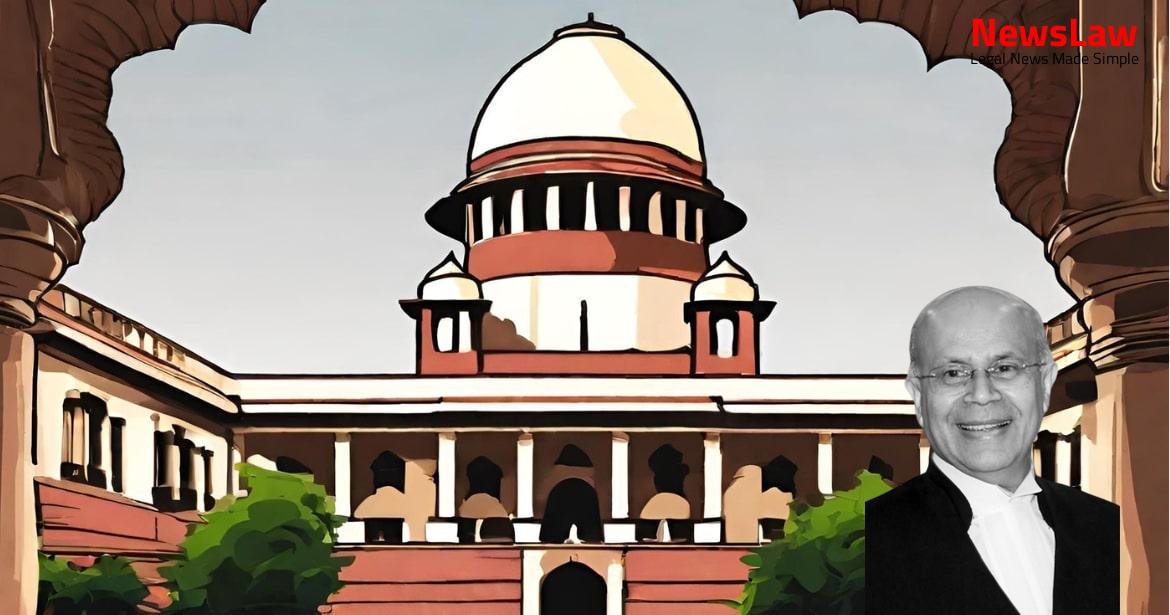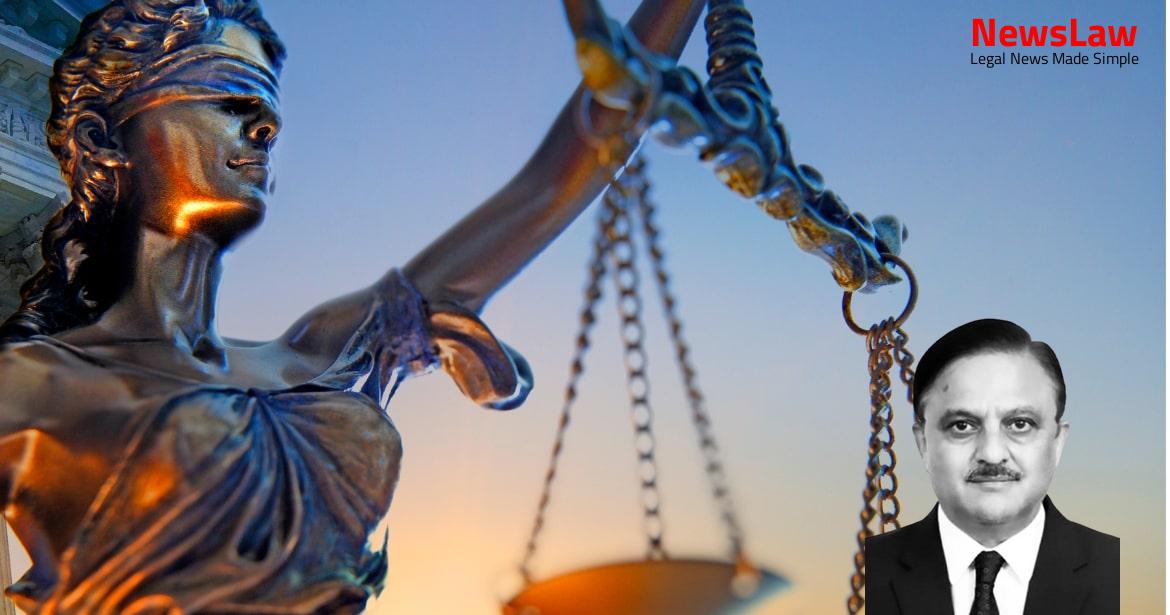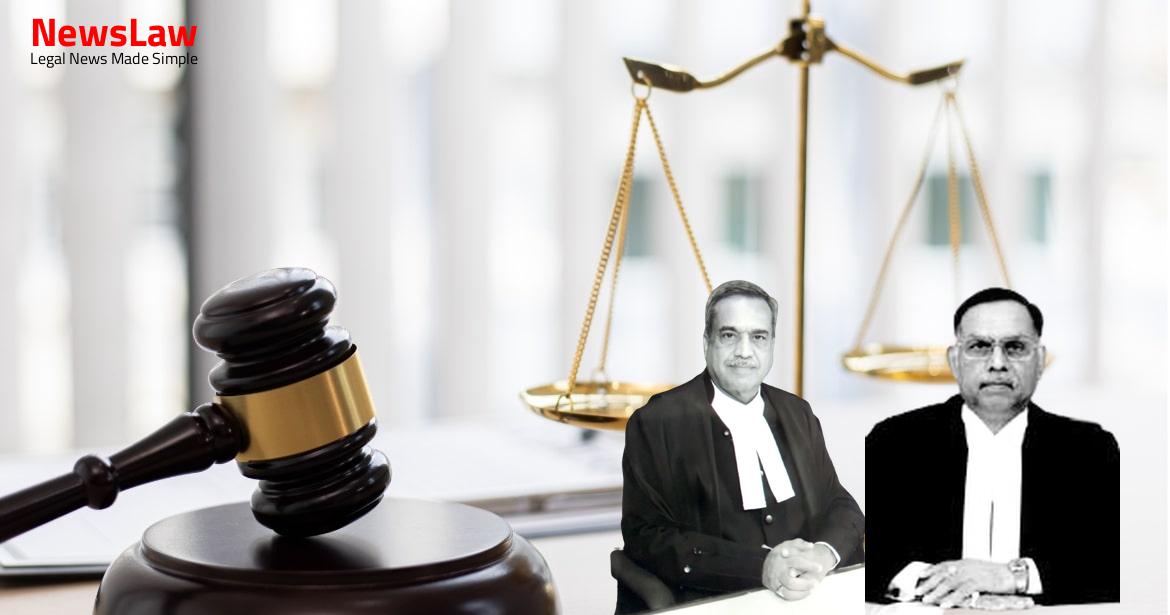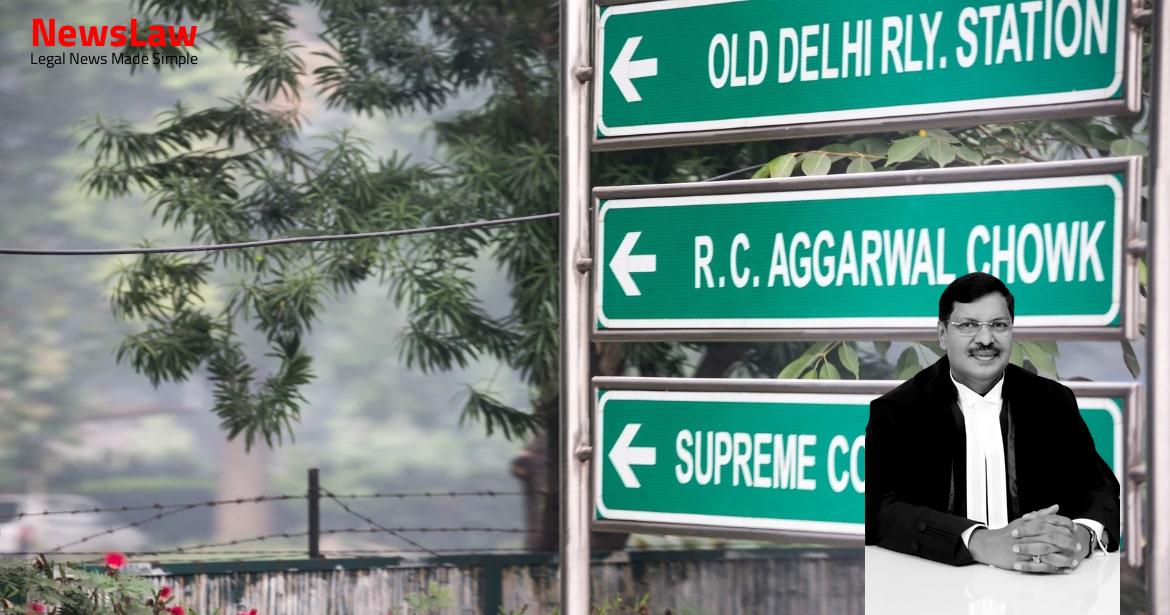Dive into a detailed legal analysis of a recent case concerning prosecution under the Insecticides Act. The High Court’s thorough examination of procedural aspects and liability allocation provides valuable insights into the application of law in complex regulatory matters. Follow along to understand the nuances of legal proceedings in cases of alleged violations under the Insecticides Act.
Facts
- High Court dismissed the petition for quashing of the complaint filed by Quality Control Inspector under the Insecticides Act, 1968.
- The petition was allowed for the other accused but not for the appellants.
- The appellants raised concerns about procedural lapses and delays in testing samples as grounds for quashing the complaint.
- Specific instances of misbranding and non-compliance with labeled declarations were cited in the complaint.
- Complaints were filed against the appellants for offenses under Sections 3(k)(i), 17, 18, and 33 of the Insecticides Act, punishable under Section 29.
- Multiple instances of inspections and testing leading to complaints against the appellants were mentioned.
- Complaints were also filed against the appellants’ dealers for selling misbranded insecticides.
Also Read: Challenging Legal Analysis in 1989 Scheme Eligibility Case
Arguments
- Appellants’ counsel argued that the complaint was filed beyond the period of limitation as per Section 24(4) of the Act.
- Counsel pointed out delays in receiving the re-analysis report from the Central Insecticide Testing Laboratory, Faridabad, as a violation of Section 24(4) of the Act.
- The counsel also highlighted that the Magistrate did not follow the procedure under Section 202 of the Code of Criminal Procedure while issuing summons.
- State counsel refuted the arguments of the appellants and stated that the complaint was not barred by limitation as the re-analysis report is considered conclusive evidence under the Act.
- The High Court considered all grounds raised by the petitioners
- The petition to quash the proceedings was rejected by the High Court
- The 2 Appellant, as the Managing Director of the 1 Appellant-Company, was rightly prosecuted by the 2 Respondent-Quality Control Inspector
- The Respondent’s counsel argued in favor of the prosecution of the Appellant
Also Read: Legal Analysis of Unilateral Cancellation of Registered Sale Deed
Analysis
- The complaint filed is considered barred by limitation due to the delay in receiving the analysis report from the Insecticide Testing Laboratory.
- The Managing Director should not be prosecuted as all other responsible persons of the Company are already accused in the complaint.
- The prosecution against the Managing Director is deemed an abuse of the process of law according to the Senior Counsel.
- There is no ground to quash the proceedings against the Company at this stage.
- The procedure under Sections 24(4) of the Act and Section 202 of the Code of Criminal Procedure were followed properly.
- The immunity provided to public servants under Section 200 of the Code of Criminal Procedure is relevant in this case.
- The report of the Government Scientific Expert is admissible as evidence per Section 293 of the Code of Criminal Procedure.
- The specific provision in the Act holds companies responsible for their conduct and the responsible person for the business.
- The Managing Director cannot escape liability by appointing others responsible for the company’s affairs and quality control.
- A resolution fixing responsibility on a manager was passed by the Company and provided to the authorities by the Managing Director.
- The decision to prosecute the Managing Director depends on the individual circumstances and relevant laws of the case.
- Section 33 of the Act states that only the responsible person of the company, as well as the company itself, shall be guilty of an offense and liable to be proceeded against.
- Section 33(1) of the Act indicates that when an offense is committed by a company, the person in charge or responsible for the company’s business, along with the company, shall be deemed guilty of the offense.
- In the current case, the Managing Director of the company has nominated a Manager to be in charge of maintaining the quality of pesticides manufactured by the company to prevent any offense under the Act.
- The filed undertaking with the respondent confirms this nomination.
- The offense in question is related to ‘misbranding’ as per Section 3(k)(i) of the Act, which is punishable under Sections 17, 18, and 33, as stated in Section 29.
- The maximum punishment for a first offense under Section 29 includes imprisonment for up to two years or a fine ranging from ten thousand to fifty thousand rupees, or both.
- For a second and subsequent offense, the punishment can extend to three years of imprisonment or a fine from fifteen thousand to seventy-five thousand rupees, or both.
- Section 468 of Cr.PC imposes a period of limitation on taking cognizance of an offense, with a limitation of three years if the offense is punishable with imprisonment exceeding one year but not exceeding three years.
- The judgment referred to in the argument is not helpful to the appellants in the current case.
- Considering the facts and circumstances, the Court partly allows the appeal.
- The order of the High Court dated 12.05.2020, in CRM-M-12082-2016 (O & M) is set aside for the Managing Director.
Also Read: Analysis of Abetment of Suicide in Caste-based Case
Decision
- Complaint No 313 dated 19.08.2015 filed by the 2nd Respondent stands quashed for the Appellant No.2, Mr. Pramod N. Karlekar / Accused No.4
- The observations and findings in this order are only for the purpose of disposal of this Appeal
- Trial Court can record its own findings based on evidence and take necessary steps in accordance with the law
Case Title: M/S CHEMINOVA INDIA LTD. Vs. THE STATE OF PUNJAB (2021 INSC 381)
Case Number: Crl.A. No.-000749-000749 / 2021



